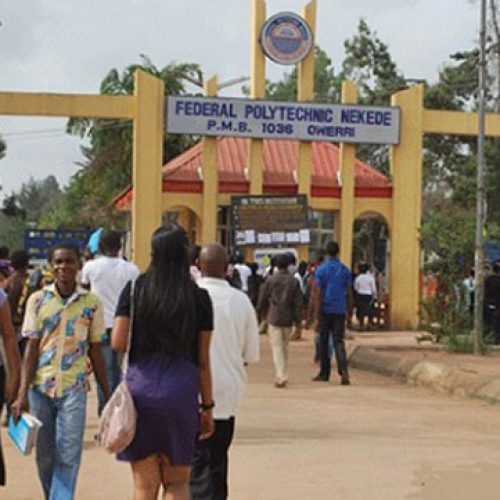Development Expectations of a Restructured Nigeria By OKEY EZE
The birth of Nigeria as a sovereign nation on October 1, 1960 raised great hopes the world over. It was believed that a giant that would lead that Black race had been born. The draft resolution that recommended Nigeria’s admission to the United Nations was never debated in the real sense of the word, neither was it questioned. Rather, the United Nations General Assembly that held on October 7, 1960 saw almost all the world leaders take turns to speak of Nigeria and its great development and leadership potentials in Africa.
These hopes reposed in Nigeria were a testimony that nascent country was abundantly endowed with the human and material resources requisite for greatness. In demonstration of its leadership role in Africa, our first Prime Minister, Sir Abubakar Tafawa Balewa, while making his maiden address to the UN on October 7, 1960 announced that Nigeria would send its troops to serve in the United Nations Peace Keeping Force in the troubled Republic of the Congo. The UN Secretary General, Dag Hammarskjold, immediately appointed Brigadier Aguiyi Ironsi of the Nigerian Army as the first African to command the UN Peace Keeping Force in the Congo. The position of Nigeria as the giant of Africa was established.
Before long, the expectations of the world and Nigerians alike began to dwindle, the lowest ebb of which became a military incursion that truncated the First Republic on allegations of ineptitude and corruption. A counter-coup and then a pogrom eventually culminated in a thirty-month civil war that gulped the lives of over three million Nigerians. The Second Republic was as well dismissed by the military, and the country kept groping for the realization of the objectives of its nationhood, and economic development remained more potential than actual.
READ ALSO: PDP Decries ‘Freezing Of Peter Obi’s Accounts’
Nearly five decades of preoccupation with development in Nigeria have yielded meager returns. The economy of the country has been stagnating or regressing. Unemployment is widespread, health prospects are getting poorer, infrastructure has broken down, industries are comatose, agriculture remains crude, crime keeps escalating, and education has taken a nosedive. The truth is not so much that development has failed than that development has not really started.
Development, in the parlance of Walter Rodney, implies increased skills and capacity, greater freedom, creativity, self-discipline, responsibility and material well-being. We have it on Rodney’s authority that a society develops economically as its members increase jointly their capacity for dealing with the environment. This capacity for dealing with the environment is dependent on the extent to which they understand the laws of nature (science), on the extent to which they put that understanding into practice by devising tools (technology), and on the manner in which work is organized (mode of social production ).
A lot of factors have been implicated in this disappointment of development in Nigeria. Depending on the analytical prism one deploys, cultural plurality and its centrifugal tendencies, avarice, corruption, military interregnum, lack of patriotism, resource curse syndrome, improbable economic policies, confusion of agenda, dwindling oil revenues and lack of diversification of the economy have almost always been readily offered as an explanation to the failure of the development enterprise in Nigeria. Singly or conjointly, these factors have serious implications on development. However, they are the symptoms of the dearth of development, never the cause. The greatest impediment to the development of Nigeria is rooted in the structure of the country, in view of which restructuring has become an idea which time has come.
You may also like to read: Imo will no longer depend on Fed. Allocation, I have the magic. –OKEY EZE
FEC approves 2019 budget proposals.
The substance of restructuring is purely economic. But there is always a tendency for some people in Nigeria to view the clamour for restructuring as a political thing. There is even some apprehension within certain circles when the subject of restructuring is raised. It is wrongly viewed as a threat to the unity of Nigeria. To some, the surest way to keep Nigeria one is to kill restructuring. But I do have an unyielding belief that the only way to kill Nigeria is to kill restructuring. Also, the surest way to keep Nigeria united is to restructure it, for the structure we currently operate has gone completely dysfunctional, drifting to its terminus.
A restructured Nigeria would engender healthy economic competition among the regions and would incline them to unleash their development potentials in the areas they have comparative advantage. It will address the incoherence and disarticulation of Nigeria’s economy. Every coherent economy possesses certain regional and sectoral reciprocity and complementarity, or what economists describe as ‘backward and forward linkages’. Also, the retrogressive quota system that breeds mediocrity in the educational and
The South East region would bring to bear its galaxy of stellar citizens with wizardry in creativity and peerless entrepreneurial spirit to evolve into an unrivalled manufacturing hub in Africa. The region will become synonymous with automobiles, airplanes construction equipment and textiles manufacturing in Africa. Aba alone has the capacity to meet the textiles needs of the entire continent. Imo also would spring surprises that will create a better life for its people. The use of the flared gas in the Ohaji/Egbema axis to generate power would be an obvious opportunity for increasing the power generation capacity of the region. Government will also partner with credible investors to set up Independent Power Plants in the State by harnessing Imo’s abundant gas potentials.
A simple investment can transform Okigwe and create value-added processing in cashew nuts and transform the landscape by harnessing the huge granite deposits through the establishment of industrial quarries that can serve the whole of the South East. Those cashews you see there that seem to be growing in the wild were deliberately planted because of the peculiar topography of that area. The Okparas in the 60s were visionary enough to think about the topography of the area. So, the answer was to plant cashews, which were supposed to protect the top layer of the soil and generate income. But today this vision has been aborted. We have not maximised these potentials. If you go to the UK, for instance, there is a departmental chain called Asda. In London, if you go into any of the Asda outlets, look across the counters. You are going to see cashew nuts. Pick it up and look at it. You will see ‘Produce of Uganda’, ‘Produce of Rwanda’, ‘Produce of Kenya’ and ‘Produce of Ghana. You are not going to see ‘Produce of Nigeria’. But in Okigwe we have comparative advantage in the production of these materials.
Restructuring will also avail us a veritable chance to look at palm oil. Imo is blessed. We have over four thousand hectares of oil palm in Adapalm. But these hectares are almost obsolete. A lot has changed between the 60s when they were planted and now. We now have improved, high-yielding, pest-resistant seedlings, and this is the variant that countries like Malaysia and Singapore are using. But we have not been able to add value.
Today, palm oil is far more valuable and lucrative in the international market than crude oil, because when you extract petro chemicals, it comes at a cost. If you sell a barrel of crude oil at sixty dollars, that will be the gross price. To extract one barrel of crude oil, you will spend between twenty-two and twenty-five dollars, in addition to its collateral demage to the environment. So it is infinitely better to focus on agriculture because it has a future; it has sustainability. We have limitless ability to produce palm oil and we have comparative advantage in its production. And if you look at the ECOWAS sub-region, for instance, the demand for palm oil and palm oil-derived products outstrips the supply.
Across the country, the pontentials are limitless. The South West would experience economic explosion resulting from the strategic nature of its location and its access to the sea. It would swiftly raise an army offinancial giants and globally recognized corporate executives.
ALSO READ: Seun Kuti nominated for 61st Grammy’s best world album (Full List)
The solid minerals in the Middle Belt would be harnessed for the development of the region and also exported to earn foreign exchange. The people would take advantage of the great opportunities in the entire agricultural value chain to become gainfully employed. The region would become the highest exporter of food in Africa and will as well generate huge revenues from tourism.
Stronger trade relations would be established between the Northern Region and the Arab World, and the Region will rapidly attract inflows of FDI resulting from such relations. It would generate dependable power supply through solar energy. The wolf of insecurity would be permanently kept out of the Region, as employment opprtunities would be enormous for the young persons who are suciptible to indoctrination and violence.
The agitations in the South South for resource control would fizzle out and militancy and sundry crimes associated with the Niger Delta Region contained through greater transparency in the management of oil revenues and an indigenous security archtecture which is conversant with the terrain of the Delta. Opportunities in oil and cognate businnesses would open up, and the youths would take advantage of them.
Generally, Nigeria would fulfill its expectations as the Giant of Africa. Pupolar participation in the public sphere would ultimately gurantee good governance. In view of that, Nigerians would attain high indices of prosperity.
About author
You might also like
The Absurdity of a Poor Country As Over 100 Private Jets Lands Kano Airport For Yusuf Buhari’s Wedding
By Ifeanyi Obute. The wedding ceremony of Mr. Yusuf Buhari, the President’s son, which held in Kano yesterday, reportedly saw over a 100 private jets owned by Nigerian politicians, touch
Mmesoma and JAMB: Probing the Integrity of Our National Institutions –Osita Chidoka
Miss Nmesoma Ejikeme took her 2023 JAMB at my foundation’s Computer-Based Testing (CBT) Center at Obosi. I got some calls from worried friends about Nmesoma’s result, which had Thomas Chidoka
#EndSARS Protests in Enugu: Chronicles of Events
By Ifeanyi Obute. #EndSARShas been the most discussed topic ever since the protest started on the 7th of October 2020. Prior to the protest proper, hashtag EndSARS trended heavily on
2019: Northern Elders, Arewa Youths, 16 others Rejects Buhari, Northern politicians Re-election bid
President Muhammadu Buhari and other political leaders of the All Progressives Congress, APC from the North are rated low in leadership and the widely expected drummed change hence should not expect re-election
Insecurity: “Lives of Federal Polytechnic Students” Matters
By Leeyoung Now that the Academic Staff Union of Polytechnics, ASUP, has suspended their bimonth strike, the students of Federal Polytechnic Nekede, Owerri Imo State will soon be returning from
Sam Omatseye’s Obi-tuary In Touch: Accumulation Of Envy And Hate …THE BITTER TRUTH… VOLUME ONE
By Igboayaka O. Igboayaka. I don’t like reacting to people’s write-up about Mr. Peter Obi, the leader of OBIdient Movement that’s about to give birth to a new Nigeria. I












0 Comments
No Comments Yet!
You can be first to comment this post!